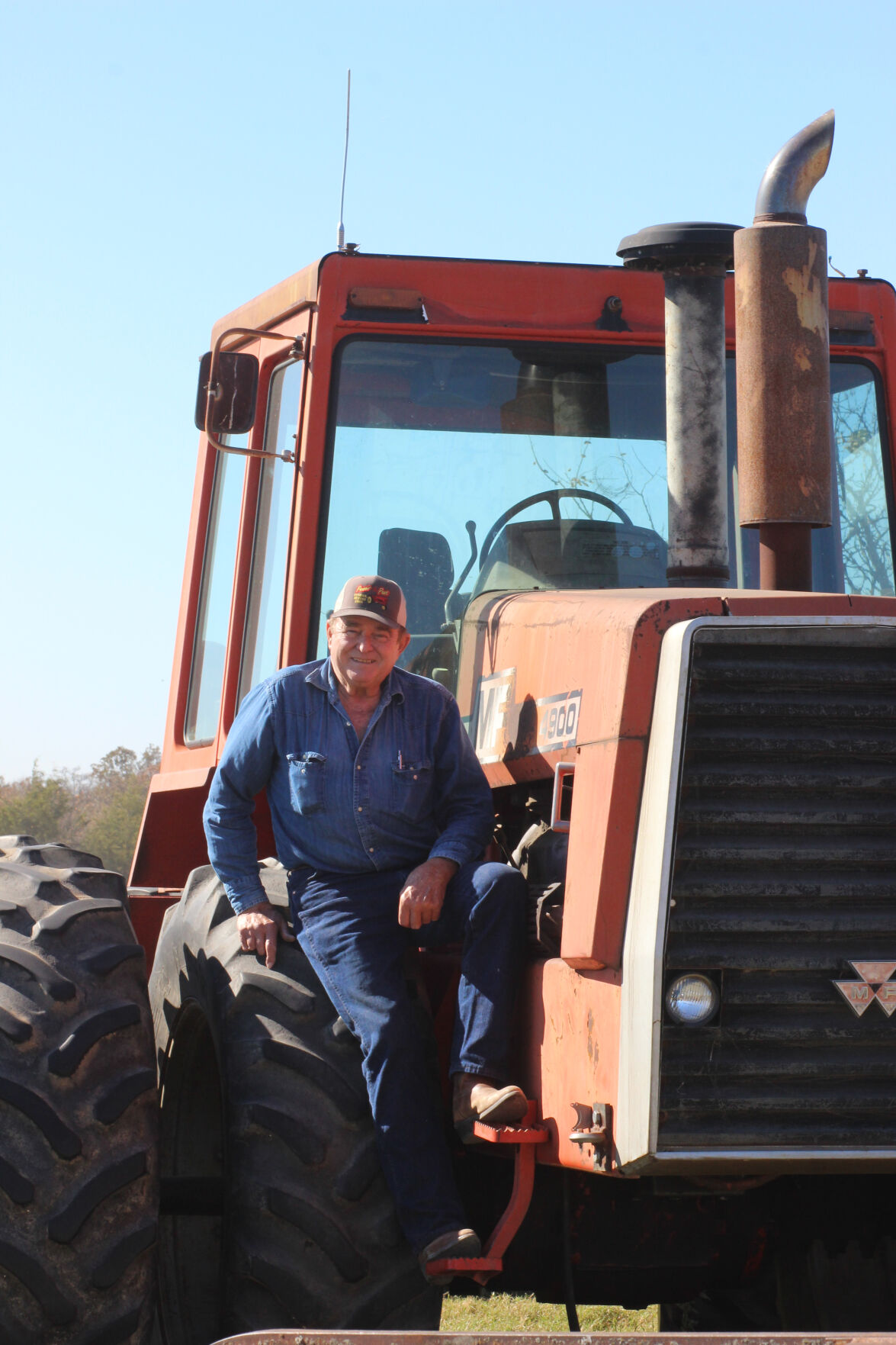The fountain of youth is in the cab of an antique tractor

Some exercise daily, many practice eating a balanced, healthy diet while others swear by eight hours of sleep every night, but for Jim Esbenshade of Colbert, Oklahoma, the secret to staying young is dreaming big and making plans. For him, those plans mostly revolve around antique farm machinery—Massey in particular. Now 74 years old, Esbenshade started collecting when he was 15 growing up in Pennsylvania.
Esbenshade said his father inspired him to collect and even helped start a farm show in 1951 in Kinzers, Pennsylvania, called the Rough and Tumble Antique Tractor Pull.
“We’d been going to tractor shows my whole life,” he said. “That was one of the first tractor shows of that caliber in America.”
Although he collects all brands, Masseys are special to Esbenshade.
“Some people get hung up on just one tractor, to me I love all brands,” he said. “But I enjoy Masseys because no one else fools with them. Growing up, we were Mennonites and there was a person in our church who sold Masseys and they were built better than anything else in his opinion.”
Eventually he migrated to Oklahoma from Pennsylvania in search of affordable land to purchase. He settled in Colbert and raised his family there. While Esbenshade has always been involved in agriculture and still runs a 700-head cow herd, since 1998, one of his main businesses had been grease rendering. He hauls grease from food industry establishments, removes the solids and volatizes the impurities with heat before being resold for use in animal feed, oils and cosmetics.
World-traveling collector
Esbenshade estimated he owns over 500 tractors and still has plans to acquire more. His hobby has taken him to England, Germany, Austria, France, Italy and Australia to purchase pieces and ship them back to the United States.
“I have met some of the neatest people in the world through collecting,” he said. “They just have that sparkle in their eye and can be 99-years-old and they still aren’t done. They want to get this tractor or fix something and they’re still dreaming.”
It sounds impossible, but Esbenshade said he has never used the internet to find equipment.
“I’m not into computers, people just call me,” he said. “Word of mouth travels.”
Among Esbenshade’s most treasured pieces are four tractors that his father bought new, including a 1942 Massey-Harris 81, which Esbenshade restored, a 1943 Farmall A, a 1936 Farmall F20 and a 1951 Allis-Chalmers WD.
“To other people they probably wouldn’t be worth much, but they are to me,” he explained.
When asked if there was ever a piece of machinery that he had always wanted, but never gotten the opportunity to purchase Esbenshade was quick to respond.
“I always wanted to buy a Massey-Ferguson sugar cane harvester and I just purchased one and it was just delivered,” he explained. “I traded a John Deere hay cubing machine for it.”
However, Esbenshade is not just a fan of the machines, he also loves history and discovering what the world was like when each piece in his collection was built.
“When I look at a piece of machinery, I want to know what year it was built and what was going on in the country at the time,” he said. “I call it the DNA and I love to match the implement to the tractor to use it for what it was built to do.
“It’s fascinating—whether it’s a motor or a piece of equipment—to see it come to life again,” Esbenshade said. “Some people say this stuff was no good from new, but every bit of this equipment that was built—no matter what it is—if it’s put in the proper conditions and run the proper way, will do a fine job or it would have never been built.”
Sign up for HPJ Insights
Our weekly newsletter delivers the latest news straight to your inbox including breaking news, our exclusive columns and much more.
Furthermore, Esbenshade said everything built prior to 1930 was made from high-quality iron ore.
“After World War II, they started melting ore down and with junk ore and it makes poor quality steel,” he said. “If you want real good metal, then that old stuff is where it is.”
Golden Harvest Days and a Massey World Museum
Since 1995, Esbenshade has been hosting an event call Golden Harvest Days every summer and it continued even through the COVID-19 pandemic.
“We were the only show in Oklahoma that year and we had over 1,000 people attend in 2020,” he said.
Golden Harvest Days is held over a two-day period and welcomes collectors from all over the world to enjoy antique farm machinery and even puts the vintage machines to work in the field. The event kicks off with a 40-mile parade of tractors from Denison, Texas, to the Esbenshade farm. Later there is a tractor drive for the 4-H and FFA members, musical entertainment in the evening and a supper. Day two of Golden Harvest Days is when the machinery is taken to the field for farm demonstrations. Esbenshade plants small plots of sweet corn, green beans, potatoes, alfalfa and sorghum so the antique tractors and implements can be used to harvest them and show the onlookers how they function. He plans to add sugar cane to the rotation next year so he can put the new sugar cane harvester to work.
“I do it so everyone can come and have fun and enjoy themselves and also in memory of my son, Jaime, who died when he was in high school,” Esbenshade said. “He loved the old machinery and studied it.”
For years Esbenshade has been dreaming of building a Massey World Museum to house the collection he has built for most of his life. The journey to completing the museum has not been easy and at one point Esbenshade considered giving up on his long-time dream, but his daughter, Ingrid, reminded him of the legacy it would leave for his children and grandchildren and urged him to move forward with the project and keep collecting. Her encouragement might have made all the difference, because at last the museum has an expected grand opening of June 2022.
Esbenshade was born during the 100th anniversary of Massey, so the museum will open during the 175th anniversary year. He expects the Massey museum to include over 200 tractors, 100 implements, a large toy collection and literature he has collected over the years. The museum, located on his farm, will be open to the public as a way to keep history alive for the next generation.
“It’s my way of sharing my collection with everybody instead of keeping it bottled up and taking it to my grave,” Esbenshade said.
Although he said collecting keeps him feeling young, Esbenshade also tries to get young people involved in collecting.
“You have to have it in your heart like anything and we have several young people who are interested,” he said. “We need the youth, that’s why we have tractor driving contests and try to get them involved in tractor parades. It’s slowly disappearing. We need to keep to our roots and that’s one of the major reasons I fool with this.”
Lacey Vilhauer can be reached at 620-227-1871 or [email protected].



